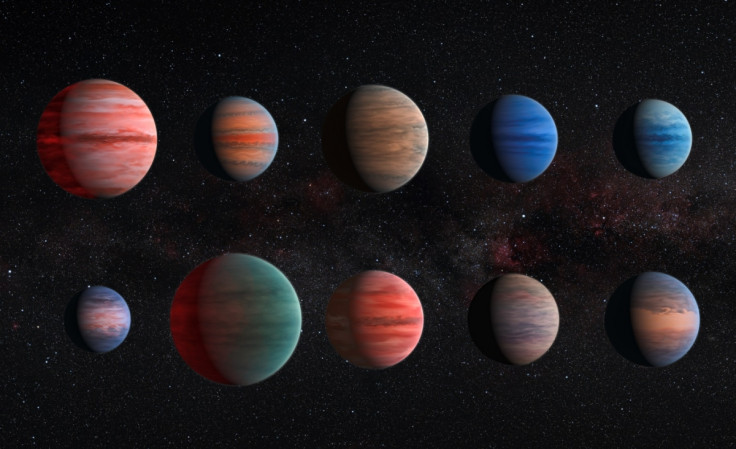Astronomers battle through clouds and haze to find water on exoplanets

The largest ever study of planets outside of the solar system has revealed the existence of water, say researchers. The water had been hidden by haze and cloud, which previously left astronomers puzzled.
Researchers from the University of Exeter examined the atmosphere of 10 hot exoplanets – planets outside of the solar system – to finally resolve the mystery of the missing water. Scientists did have an idea that water existed on some of these planets, but the latest research confirmed the presence of the liquid was hidden behind a wall of cloud and haze.
"I'm really excited to finally 'see' this wide group of planets together, as this is the first time we've had sufficient wavelength coverage to compare multiple features from one planet to another," said David Sing, lead author of the study. "We found the planetary atmospheres to be much more diverse than we expected, and this significantly progresses our understanding of what makes up these planets and how they were created."
The astronomers studied exoplanets known as 'hot Jupiters', as they share similar characteristics with the planet in our own solar system. Each of the 10 exoplanets travelled between Earth and their own host star – similar to our own Sun. When that happens, some of the light from the host star travels towards us, intercepting the exoplanets outer atmosphere as it goes, collecting fingerprints at the same time.
The atmospheric fingerprints were then analysed by the experts, also including researchers from the NASA/ESA Hubble Space Telescope, and the NASA Spitzer Space Telescope. They uncovered signatures from a number of elements and molecules – including water – to spot the exoplanets with clouds, and those without clouds.
The results, published in Nature, showed that exoplanets that had previously suggested signs of water – although nobody could find it –, also contained clouds and haze. Both of these have blocked astronomers' view in 'seeing' the water in the past.
"The alternative to this is that planets form in an environment deprived of water – but this would require us to completely rethink our current theories of how planets are born," said Jonathon Fortney from the University of California, co-author of the study. "Our results have ruled out the dry scenario, and strongly suggest it's simply clouds hiding the water from prying eyes."
Nearly 2000 exoplanets have been discovered so far. Astronomers hope the James Webb Space Telescope, due for launch in October 2018, will uncover more secrets from outer space with its infrared technology.
© Copyright IBTimes 2025. All rights reserved.






















